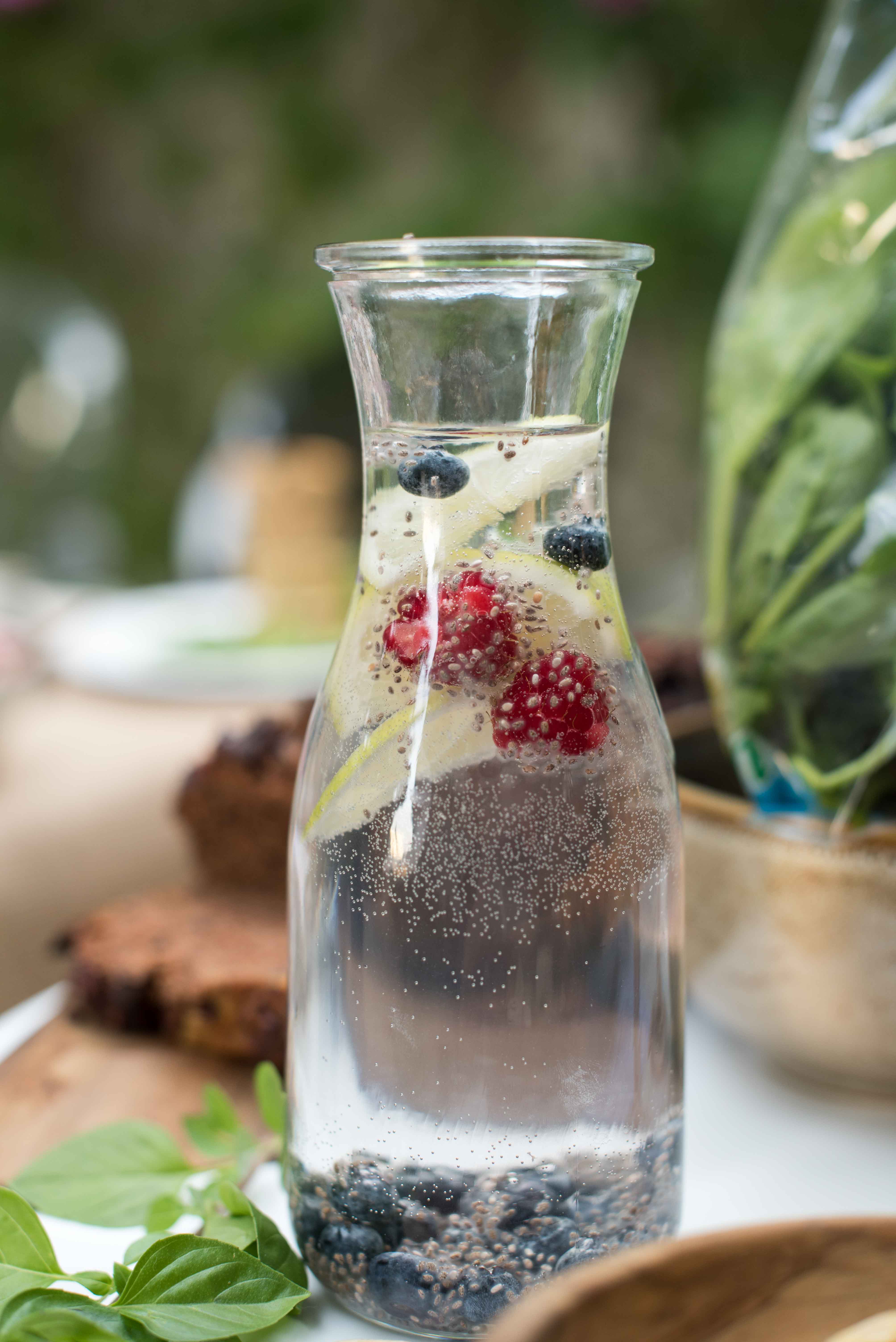A short and sweet blog post this time around. Here are twenty tips to reduce your bloating and keep your belly happy.
1. Eat several small meals a day (allowing 3 hours between meals) and make sure you chew your food thoroughly.
2. Schedule your workouts wisely. Exercising immediately after eating can cause indigestion. Make sure to wait at least an hour after a meal before hitting the treadmill.
3. Devote sufficient time when eating so you can enjoy your food and start the digestion process correctly.

4. Drink water to stay hydrated but also to facilitate digestion and help food move easily and readily through your gut.
5. Call restaurants in advance to find out what menus are available and whether or not you can replace items so your meal caters to your digestive needs.
6. Relaxation techniques, meditation, yoga and the practice of mindfulness (training the mind to focus on the present moment) are good ways to reduce bloating.
7. Include probiotics (good bacteria) in your diet. Incorporate into your diet fermented foods like lactose-free yoghurt, lactose-free kefir, tempeh, pickles and one (1) tablespoon sauerkraut.
8. Try replacing fructan-rich grains such as wheat, barley and rye with quinoa, buckwheat, teff and sorghum.
9. Watch out for sugar alcohols (polyols), which are commonly found in sugar-free foods, gum and soda.

10. Beware of these five common foods with a HIGH lactose content: milk (3.3%, 2%, 1%, skim), chocolate milk, evaporated milk, goat's milk, pudding and custard made with milk.
11. These five common foods are LOW in lactose content. Sour cream (60 mL), cream cheese (50g), mozzarella cheese (30g), feta cheese (30g), and haloumi (30g).
12. Eat your food slowly. Eating too fast and not chewing well can cause air swallowing that can lead to bloating and discomfort.
13. Keep in mind that carbonated drinks and drinking with a straw can lead to bloating.
14. In order to enjoy the flavors of garlic or onion but still keep it low FODMAP, sauté garlic or onion in some oil to infuse it with those flavors, then discard the garlic & onion & only use the oil.
15. Spices add flavor to your food and are low in FODMAPs. Use allspice, black pepper, cardamom, cloves, cinnamon, cumin, nutmeg, paprika, saffron, star anise and turmeric.

16. Use aromatic herbs to flavor your food in a low FODMAP manner. Some great options are: basil, parsley, cilantro, oregano, mint, lemongrass, coriander, tarragon, rosemary and thyme.
17. A Monash FODMAP-recommended serving size of these five low FODMAP fruits provides a great source of fiber: guava (ripe), breadfruit, prickly pear, dragon fruit (pitahaya) & kiwi (gold and green).
18. Take care not to overindulge on alcohol, as alcohol can be irritating to the gut.
19. Aim to eat whole unprocessed foods that are packed with nutrients. Processed foods tend to be loaded with sugar and, more often than not, have little nutritional value.
20. Avoid snacking continuously throughout the day. Make sure to fast between meals and snacks to allow for cleaning waves to take place. These waves move food, water and bacteria from the small intestine into the colon and clean your digestive tract.
As always, cheers to a happy belly!


